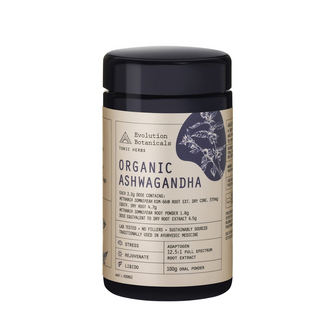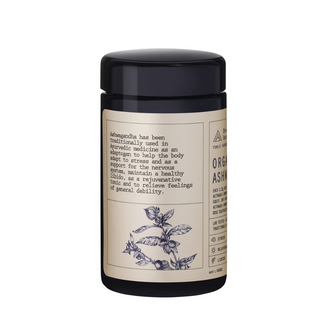Categories
Weight gain is something that happens to most women as we age and especially during perimenopause and menopause (peri/meno for short).
But why is this so?
Well, it comes down to our hormones but many things come into play in which we will discuss...
As we get older and we go through various hormonal changes and life difficulties, what can happen for many women is a dramatic drop in testosterone (that hormone that we often only associate with the male species).
But testosterone is important for us women too - just like oestrogen is also important for men!
During a woman's fertile years, our major sex hormones are oestrogen and progesterone and we need these hormones to help regulate our menstrual cycle and sustain a pregnancy (amongst other functions).
During the transition into menopause (perimenopause), our ovaries begin to slow down production of both of these hormones and that's why might hear a lot about these when you hit this phase of your female life.
Most often we think that it's the reduction of these two hormones that cause us our woes (symptoms) but one of the major players here may actually be low testosterone!
Your ovaries actually produce testosterone in small amounts and it is vital for hormonal balance and to fuel your sex drive.

How Can I Tell I am Low in Testosterone?
- Your sex drive (libido) may be low or non-existent
- You may experience a reduction in sensitivity, sexual pleasure and arousal
- Fertility issues
- Irregular menstrual cycles
- Loss of pubic hair/thinning out
- Depression
- Tiredness or fatigue
- Decreased feeling of vitality
- Weight gain
- Decreased muscle tone/difficulty creating muscle
Lots of factors can cause low testosterone such as thyroid issues (underactive), high blood sugar, PCOS (polycystic ovary syndrome) and perimenopause and menopause, oral oestrogen and lack of exercise (sedentary lifestyle).
How the Adrenals Get Involved?
Your adrenals (adrenal glands) produce many different types of hormones such as:
- Mineralocorticoids (aldosterone)
- Glucocorticoids - such as cortisol
- Androgens - DHEA (precursor for testosterone and oestrogen)
You may have of 'Adrenal Fatigue' or even experienced it for yourself and can make life challenging (as if it's not challenging enough right?) and it can lead to weight gain, so getting our adrenals happy and functioning again is vital!
One herb you may have heard of that shows great promise for adrenal and weight issues is ashwagandha - it has been shown to help us in many ways, in which you will learn (unless you already know this stuff of course)?

How Ashwagandha Can Help with Weight Loss
We know that chronic stress is associated with many illnesses and that includes obesity, so it goes without saying that anything positive we can use to reduce our stress is going to have a positive affect on helping to reduce illness, weight gain and ultimately help us to achieve more health and vitality.
Here is where Ashwagandha can help you...
In a study cited in a PubMed article, it was shown (through a double-blind, randomised, placebo-controlled trial) that those given Ashwagandha root extract helped to reduce both their weight and their stress.

DHEA's Role in Our Weight
As mentioned, DHEA is the precursor for important hormone testosterone and is produced by our adrenal glands. It is also important in producing oestrogen.
If our testosterone is low (we may experience weight issues as mentioned) and so we might like to consider naturally boosting it through natural means and again, Ashwagandha may help you here.
Note: we aren't suggesting that taking a herb such as Ashwagandha will fix all your woes as lifestyle factors and underlying health issues must always be addressed. It is just something to seriously consider and always seek advice from your trusted health practitioner.
Lifestyle Factors that Deplete DHEA
- Medications
- Stress
- Leaky Gut Syndrome
- Parasites and Infections
- Chronic inflammation
- Physical Nerve stress
- Nutrient deficiencies
- Poor nutrient absorption
- Poor sleep
- Imbalanced blood sugar
- Regular exposure to EMFs

By boosting our DHEA (naturally with a herb such as Ashwagandha), we will potentially help boost low testosterone and this can have a positive outcome with our weight and also muscle tone.
Who doesn't want toned arms like Michelle Obama right?
Being a woman isn't easy but if you learn to better understand our hormones and how stress deeply affects us and how everything is connected, this will serve us greatly.
Summary
Without sounding overwhelming (that is the last thing you need for your stress levels), let's try to break it down so you have a takeaway plan...
- Try to reduce the unnecessary stress in your life by taking more time out for yourself, learning to say no and have boundaries with others, and taking things OFF your plate!
- Add a herb such as Organic Ashwagandha to your daily regime
- Keep your gut health in check by eating foods that support your digestion and microbiome (probiotics and prebiotic fibre are a great place to start)
- Get checked for Leaky gut if you think you may have this? See our Leaky Gut Blog here.
- Look after your blood sugar levels by eating less starchy foods, refined foods, sugar and incorporating more healthy fats such as avocado, unrefined extra virgin cold-pressed oils such as coconut oil and olive oil, grass-fed butter or ghee and oily fish such as salmon and sardines.
- Reduce your exposure to EMFs (electromagnetic fields) by having regular breaks from all technology (phones, computers, TVs etc.) - getting into nature without our phone is a great place to start and if you take your shoes and socks off and get your bare feet on the ground, it is even better!
To learn more about earthing and it's benefits (which I highly recommend) is to check out our blog about earthing here.
References:
https://www.ncbi.nlm.nih.gov/pmc/articles/PMC5871210/
https://www.ncbi.nlm.nih.gov/pmc/articles/PMC6750292/
https://www.healthline.com/health/low-testosterone-in-women
https://www.yourhormones.info/glands/adrenal-glands/
https://www.drhagmeyer.com/perimenopause-and-low-testosterone-even-woman-may-experience-low-t/
https://www.medicalnewstoday.com/articles/322663#treatment
https://drjockers.com/10-tips-boost-dhea-levels/
https://hormonesbalance.com/articles/how-adrenal-fatigue-causes-weight-gain-fluid-retention-and-exhaustion/
https://healthmasters.com/aging-women-testosterone-and-dhea
https://www.farrinstitute.org/low-testosterone-in-women
Disclaimer: These are only potential benefits. This article is purely intended for informational purposes and not as advice. One must seek proper professional advice from their trusted health practitioner.






